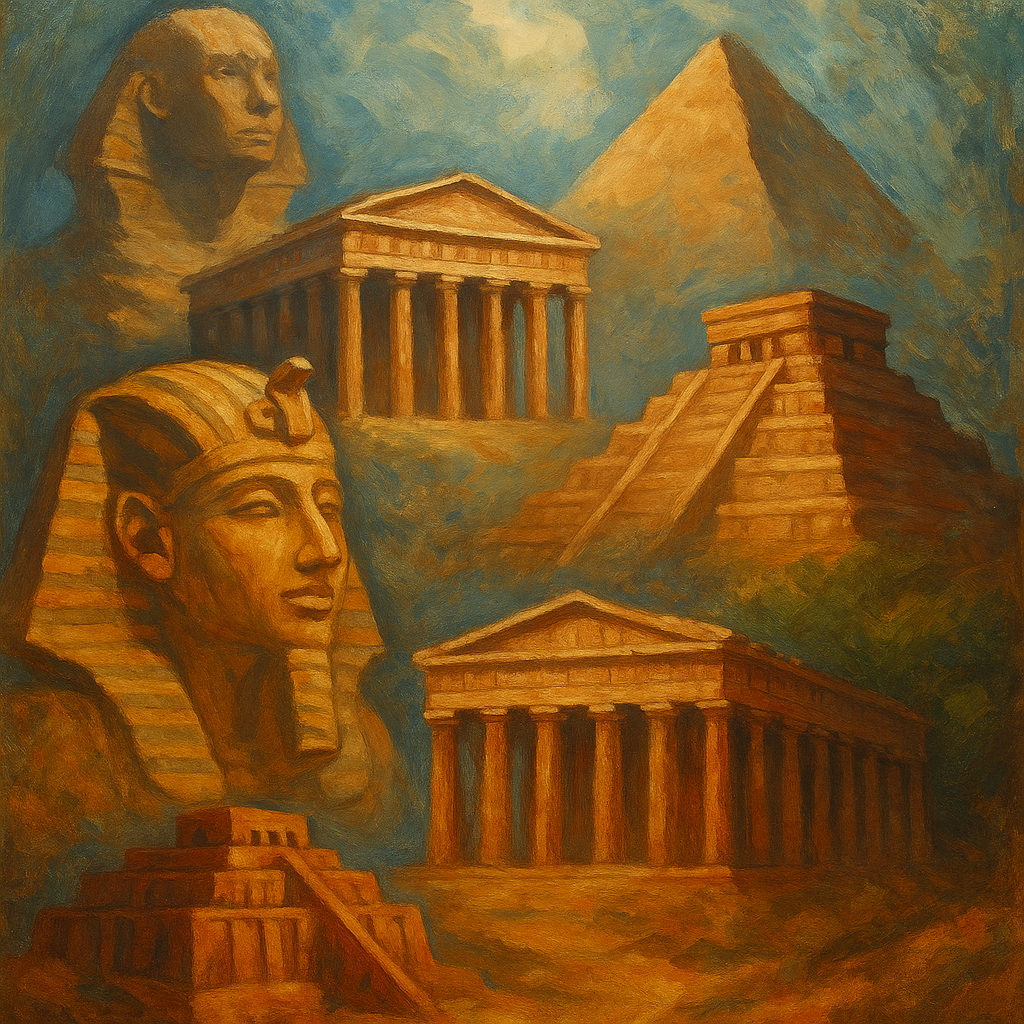Civilizations that changed the world have often been overlooked in history. Many remarkable societies, known as forgotten civilizations, have left an indelible mark on our modern world. From innovations in governance to advancements in art and science, these ancient cultures are more than just relics of the past. Understanding their impact helps us appreciate the legacies they left behind.
The Importance of Forgotten Civilizations
What are forgotten civilizations? These are societies that played crucial roles in shaping human experience yet are often omitted from mainstream history. Their narratives, however, reveal much about the evolution of human thought, culture, and societal structure. Below, we explore several key civilizations that changed the world and their remarkable stories.
Ancient Egypt: A Beacon of Innovation
1. Architecture and Engineering: Ancient Egypt is renowned for its monumental architecture, including the pyramids of Giza. These wonders are testaments to the civilization’s engineering prowess.
2. Writing and Record Keeping: The Egyptians developed one of the earliest writing systems, hieroglyphics, which laid the groundwork for written language.
3. Cultural Legacy: Egyptian art, religion, and philosophy continue to influence modern culture and literature, as articulated in various academic studies.
According to the Academic Research Portal, Egyptian innovations in medicine and mathematics have been foundational for future civilizations.
The Indus Valley Civilization: Pioneers of Urban Planning
Often overshadowed by its contemporaries, the Indus Valley Civilization was a leader in urban development. It showcased advanced city planning, drainage systems, and public baths. The cities of Mohenjo-Daro and Harappa set a standard in urban architecture.
* Urban Infrastructure: The grid layout of these cities highlighted an understanding of efficient urban management.
* Trade Networks: Extensive trade networks helped disseminate their cultural practices and products, impacting regions far beyond their borders.
Mesopotamia: The Cradle of Civilization
Mesopotamia, often referred to as the “Cradle of Civilization,” saw the rise of some of the earliest urban centers, including Babylon and Sumer. Its innovations include:
* Writing Systems: Cuneiform writing allowed the recording of transactions, laws, and literature, influencing subsequent cultures.
* The Wheel: The invention of the wheel revolutionized transport and trade, making it a cornerstone of modern society.
The Mayan Civilization: Masters of Astronomy
The Mayans were pioneers in mathematics and astronomy, with their ability to track celestial movements leading to highly accurate calendars.
* Cultural Contributions: They left behind stunning architectural and artistic achievements, influenced by religious and cosmological beliefs.
* Impact on Agriculture: Their agricultural advancements enabled them to sustain large populations, showcasing the importance of agricultural innovation.
Ancient Greece: Thought Leaders in Philosophy
Ancient Greece is well-known for its philosophers, but it also made significant advancements in numerous fields, such as politics and the arts.
* Democratic Governance: The concept of democracy from Athens has shaped political systems globally.
* Scientific Foundations: Early Greek philosophers laid the groundwork for modern science, emphasizing reason and evidence-based analysis.
Evaluating the Impact of Forgotten Civilizations
It’s essential to acknowledge how these forgotten civilizations influenced contemporary societies. So, how did they change the world? Here are several impacts:
* Cultural Heritage: Artifacts and traditions from these civilizations shape our cultural narratives today.
* Technological Innovations: The foundation in science and technology set by these societies still resonates in today’s innovations.
* Social Structures: Governance, urban planning, and social hierarchies initiated revolutions in societal structures across the globe.
Hidden Legacies: Why They Matter
Understanding these civilizations is crucial for several reasons:
1. Educational Value: Exploring their stories cultivates a deeper understanding of human resilience and creativity.
2. Cultural Appreciation: They resonate with the idea of connectedness across different peoples and eras.
3. Breaking Stereotypes: Highlighting these civilizations combats eurocentrism in history.
Delve Deeper Into Ancient History
If you’re captivated by ancient history and the impact of civilizations, consider researching these societies further. Explore their contributions and how they laid the groundwork for our modern world. Visit Government Research Database for more insights into historical data and statistics.
Conclusion
Forgotten civilizations that changed the world significantly impacted all facets of human endeavor. By examining their contributions, we redefine our understanding of history. These ancient societies remind us that knowledge is not just a collection of facts; it’s about how we connect the dots through time. As we move forward, let’s keep their legacies alive.
Let’s uncover the stories of those who came before us and learn from the civilizations that changed the world.
